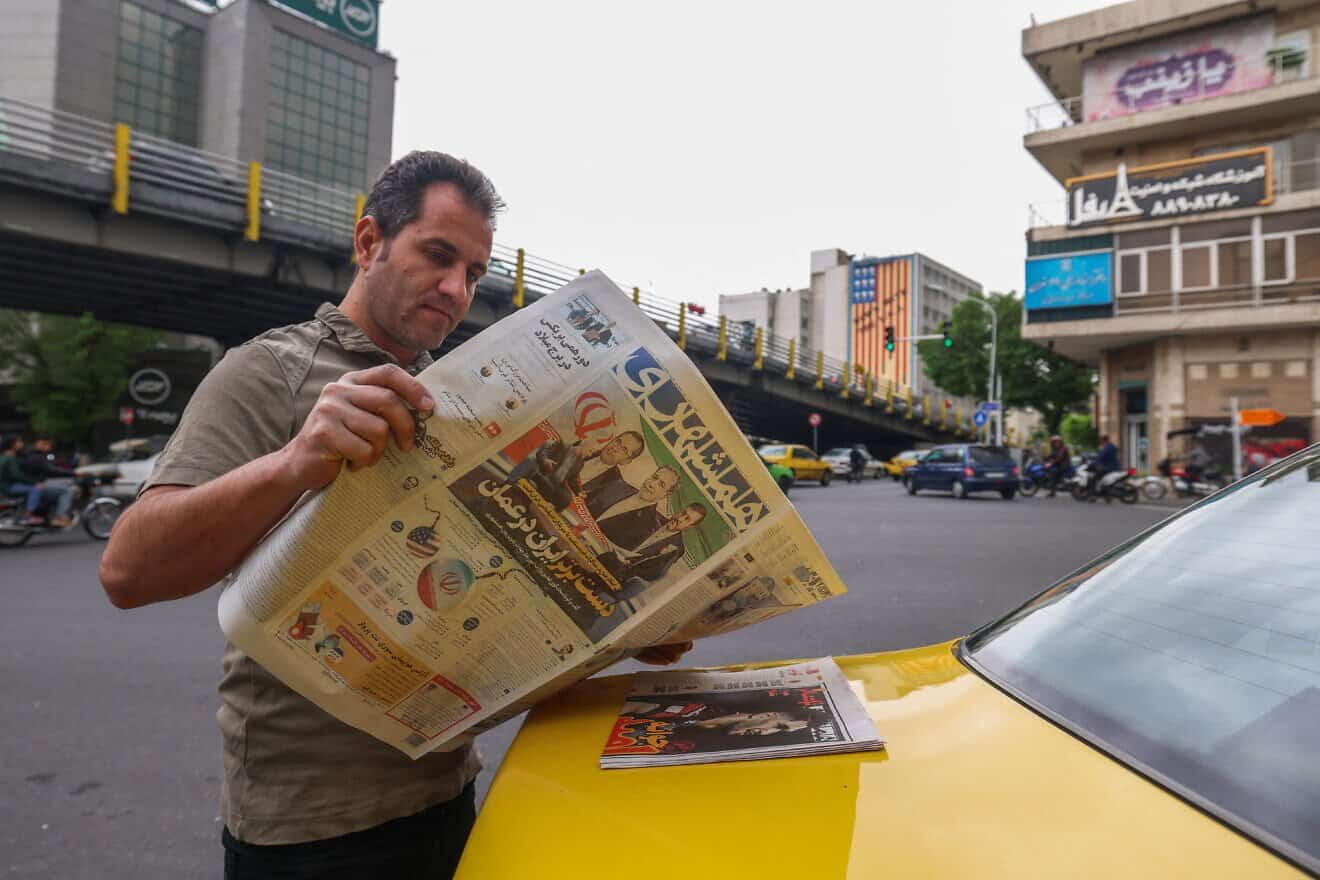by Joshua Marks
Initial meeting “positive,” says White House; Iranian economy teeters while enrichment nears weapons-grade.
 |
| A man reads a newspaper in Tehran, with the front page featuring the Iran-U.S. talks on the Iranian nuclear program set to begin in Oman on the same day, April 12, 2025. Photo by Atta Kenare/AFP via Getty Images. |
Washington and Tehran have resumed indirect discussions aimed at reviving nuclear diplomacy.
Saturday’s renewed engagement, facilitated by the Sultanate of Oman in Muscat, was the first such exchange since Donald Trump returned to the U.S. presidency. Iran’s state broadcaster confirmed that U.S. Special Envoy for the Middle East Steve Witkoff and Iranian Foreign Minister Abbas Araghchi briefly met in person—marking the first direct interaction between American and Iranian officials at this level since the Obama era.
The meeting commenced around 3:30 p.m. local time and continued for more than two hours at a secured site on the outskirts of Muscat, according to the Associated Press. Eyewitnesses later spotted a convoy believed to be transporting Witkoff returning toward the U.S. embassy compound in the city.
Both parties described the talks as “productive,” with a follow-up meeting already set for April 19 in Rome.
In a statement issued later Saturday, the White House characterized the discussions as “very positive and constructive,” while acknowledging that the diplomatic hurdles ahead remain “very complicated.” The statement emphasized that Witkoff’s direct engagement represented a meaningful step toward securing a negotiated solution that benefits both sides.
Trump also addressed the negotiations while aboard Air Force One en route to an event in Miami, telling reporters, “It’s going OK. I don’t want to say too much—nothing matters until it’s finalized. But it’s going OK. I think the Iran situation is looking fairly good.”
The backdrop to this outreach includes Iran’s rapidly deteriorating economy. Inflation has surged beyond 30%, the national currency continues to slide, and unemployment remains high—all of which are fueling internal demands for relief from U.S.-led sanctions.
Still, significant divisions persist. Tehran maintains its right to have a civilian nuclear energy program and demands a lifting of sanctions. The U.S., meanwhile, insists on verifiable safeguards ensuring that the Islamic Republic will not acquire nuclear weapons. Recent assessments by the International Atomic Energy Agency have confirmed that Iran’s uranium enrichment levels are near weapons-grade.
Washington remains wary that Iran’s nuclear program will cross critical thresholds if left unchecked. Trump has previously warned that the U.S. is prepared to carry out military strikes against Iranian nuclear infrastructure should negotiations fail. In response, Iranian leaders have increasingly threatened that they may openly pursue nuclear arms using their existing uranium reserves.
Israeli officials continue to express skepticism about Iran’s intentions, advocating for a disarmament model similar to Libya’s. At the same time, Tehran has issued pointed warnings to neighboring states, urging them not to back any U.S.-led military operation, which it says could trigger further instability in the region.
Joshua Marks
Source: https://www.jns.org/rome-on-deck-as-us-iran-talks-resume-in-oman/
No comments:
Post a Comment